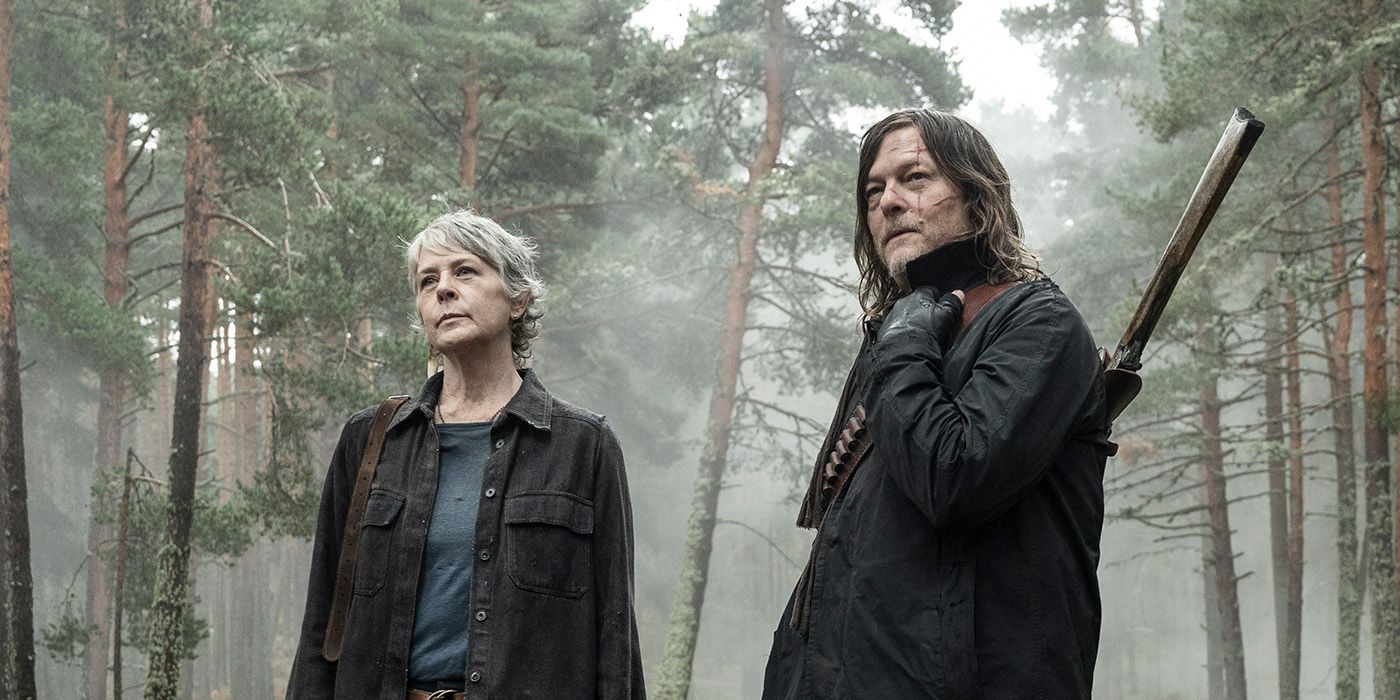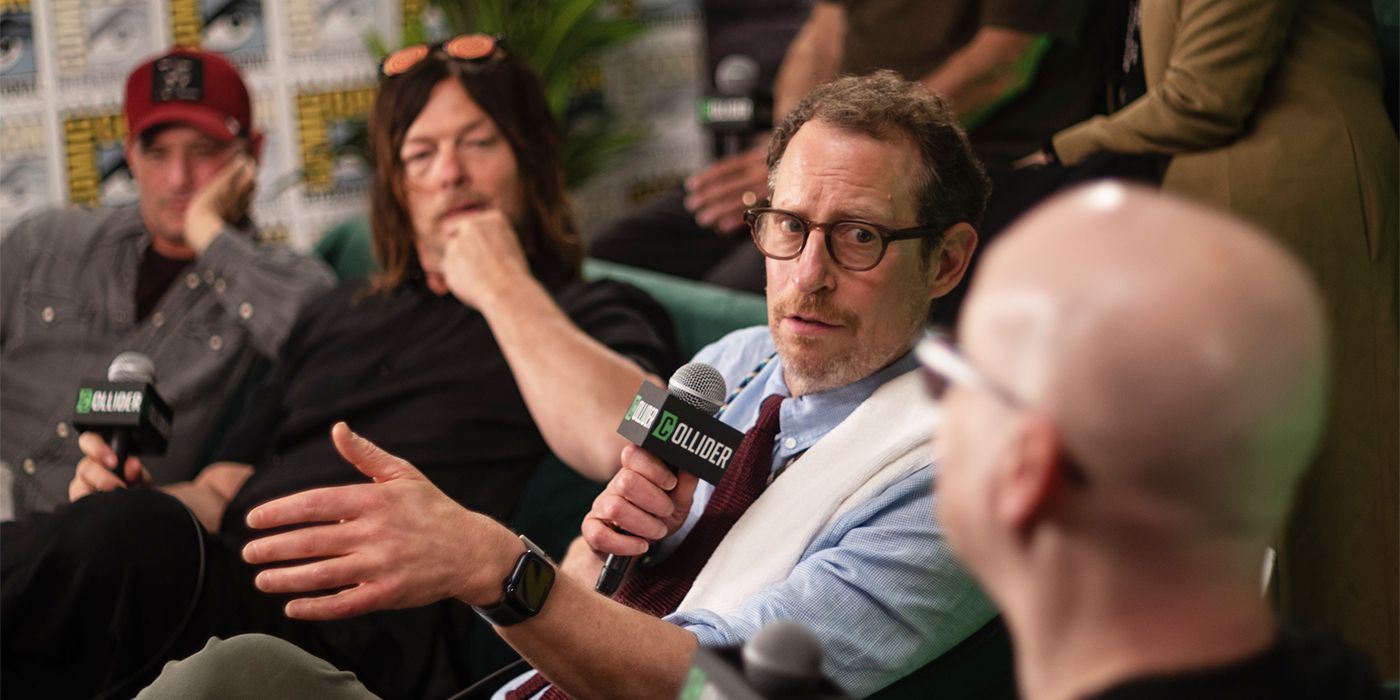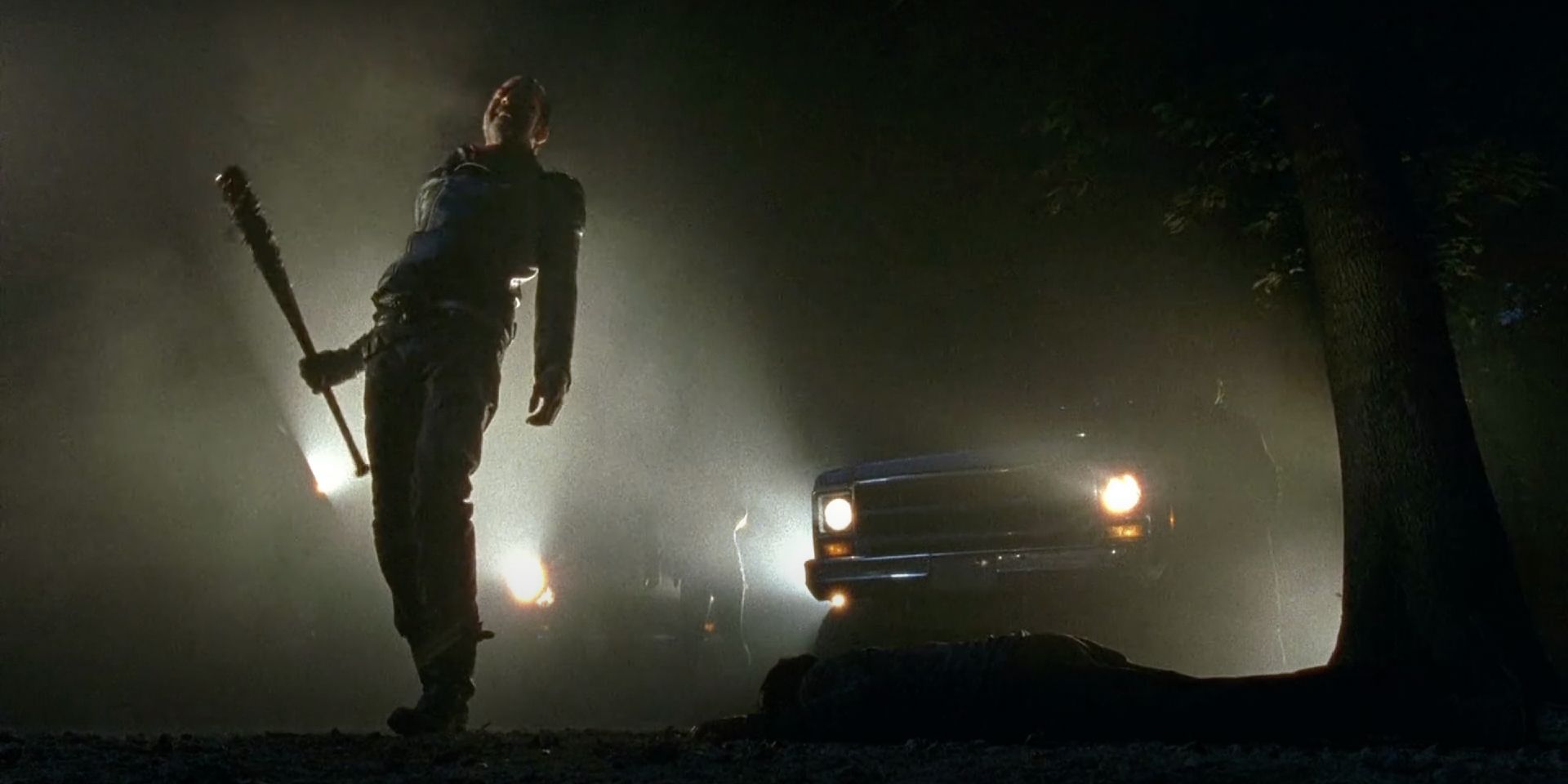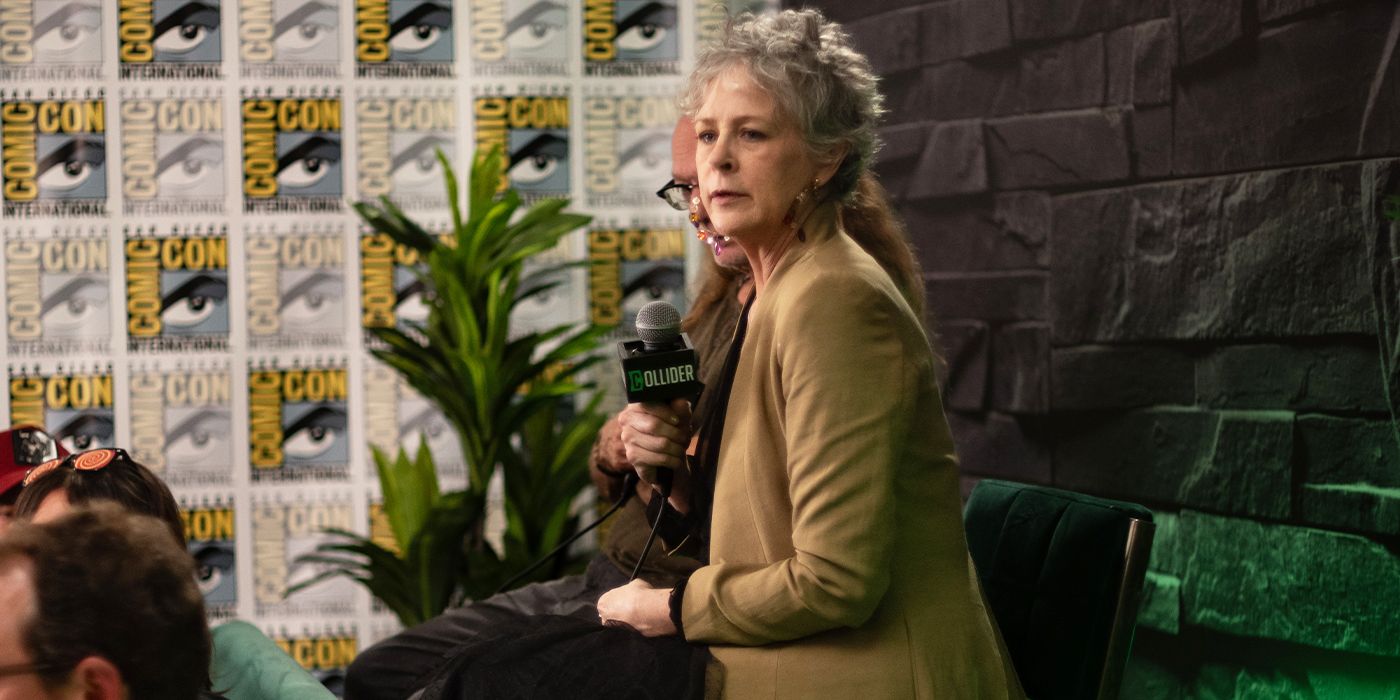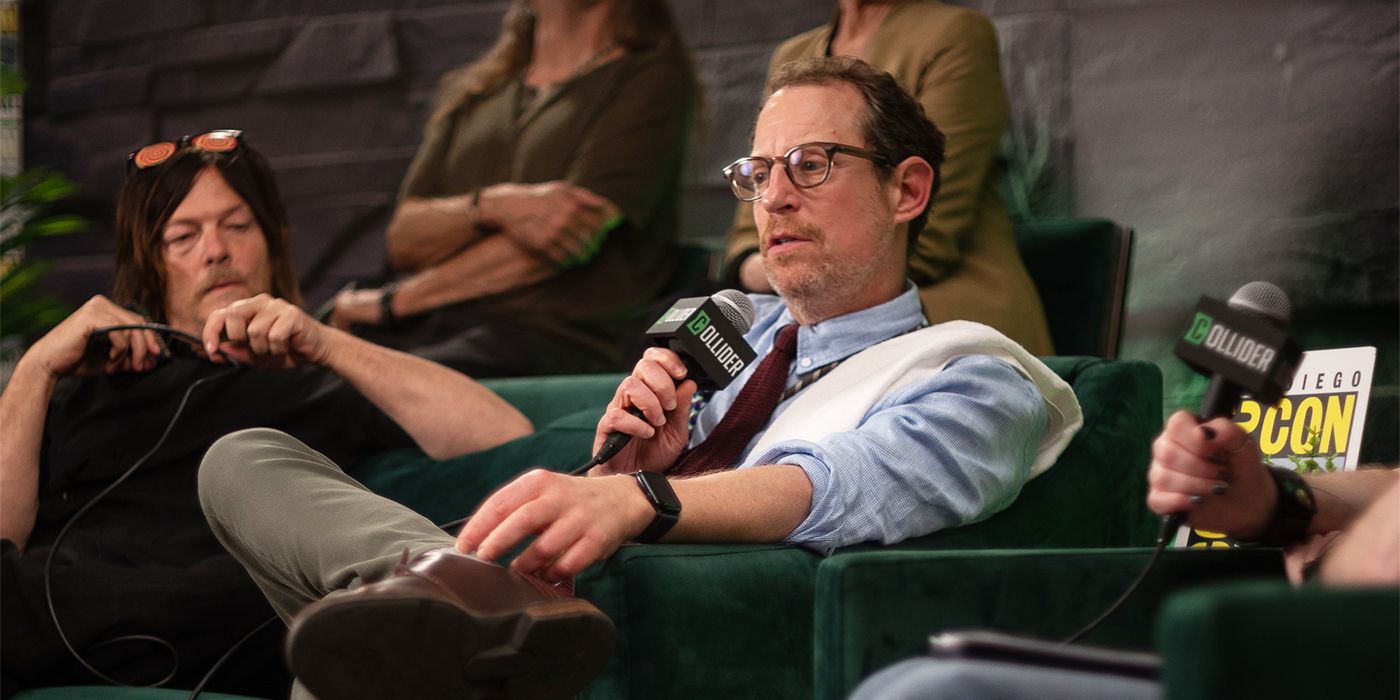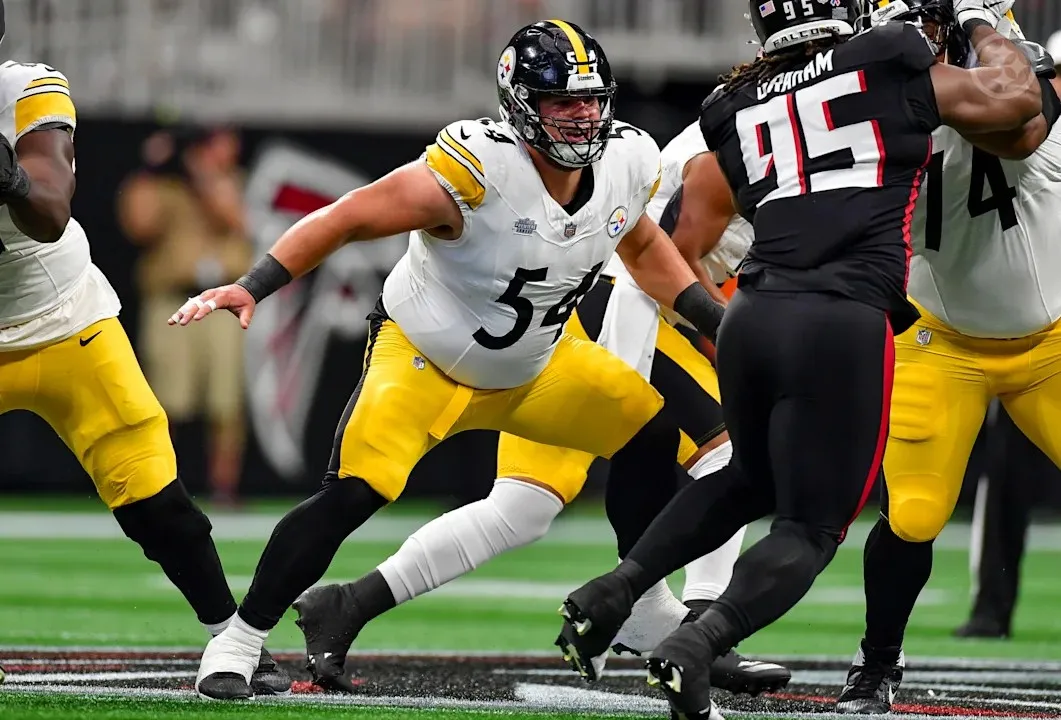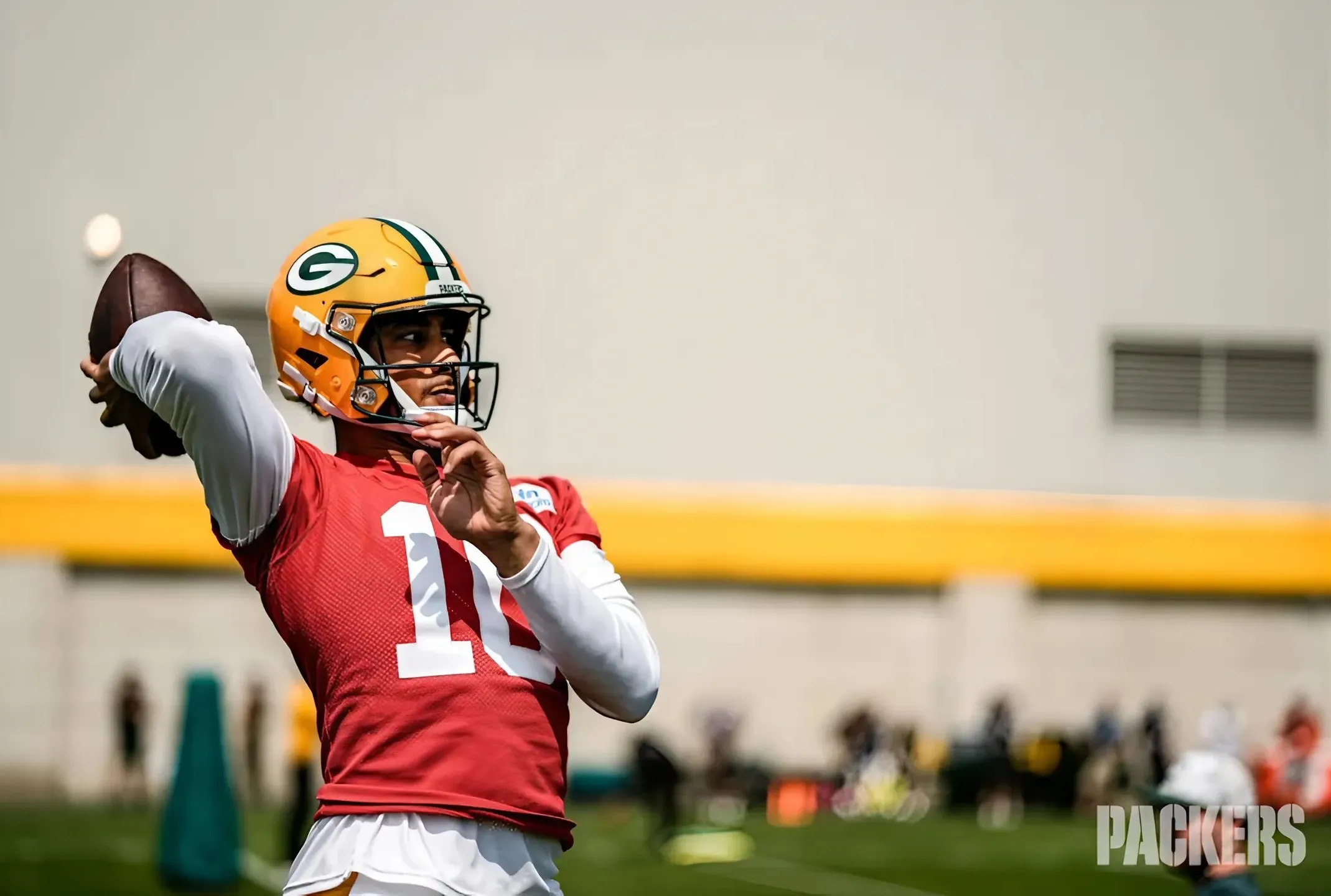In Collider's Interview Studio at San Diego Comic-Con 2025, Steve Weintraub sat down with Reedus, McBride, Scott Gimple, Greg Nicotero, and showrunner David Zabel to talk about the series' evolution, the cinematic influences the new setting for Season 3 provided, and what's next for these iconic characters. Reedus shares why he feels the European arc of Daryl Dixon's story feels like a return to the original magic of The Walking Dead, while both the cast and creative team discuss what it's like to face the end of this chapter for Daryl and Carol.
Norman Reedus Shares His Friendship With Paul Reubens
The cast and creatives also share their favorite movie theaters.
COLLIDER: I am here in San Diego at our Comic-Con studio, and I'm obviously with the folks behind The Walking Dead: Daryl Dixon. What the hell is on your phone?
NORMAN REEDUS: Paul [Reubens] was always the one... The very first Christmas card I got, the very first birthday card I would get, Valentine's Day. He was just that guy. He was so sweet. He was such a good guy.
SCOTT M. GIMPLE: How did you come to know each other?
REEDUS: I ran into him with a friend of mine. He had something going on, and I called him out on it, and we just became friends instantly.
How long ago was this?
REEDUS: When I met him? Geez, 10 years ago, maybe.
GIMPLE: Have you ever worked together?
I just watched it.
REEDUS: It's amazing, right?
It's fantastic. I love the way that he was sort of trying to take over. It's just fascinating. If you're a fan of his work, it's really illuminating, his backstory. There's so much there that he never talked about.
REEDUS: Yeah. Then he started doing interviews as himself for a second in that one part, and then it went kind of downhill, so he did every interview as Pee-wee Herman. So, he was hiding his life. Plus, when he was in public, he was being someone else. It's a crazy story.
GIMPLE: In many ways, Carol and Daryl were being someone else in this season of Daryl Dixon.
REEDUS: Are we? Are we that different? I'm not sure we're that different.
[Laughs] So I've been asking everybody the same two first questions that I'm gonna ask you guys. I'm obsessed with getting more people to see movies in movie theaters. I'm done with people on their phones. Fuck that. Do you have a favorite movie theater?
GIMPLE: I'm gonna be honest here. I have a 10-year-old, so it's the AMC at Universal City. And I know it's not, you know, The Pantages, but it gets a lot of people. You sit in a crowd with a lot of people, and it's a hometown theater. So, I'm gonna go with that.
I've heard that answer from many people.
DAVID ZABEL: I'm sort of in Scott's camp. I've got two young girls, and it's AMC Grove.
GREG NICOTERO: I'm a New Beverly guy, but mainly because it's such a great old theater and I love the programming. It's one of my favorites.
MELISSA MCBRIDE: I would like any theater that's next to a 24-hour diner.
Yeah, I agree with that. A lot of people have been coming in talking about theaters that serve food. I'm not really that guy, and if I'm watching a serious movie, I don't want people having a burger around me.
ZABEL: Yeah, I'm with you on that. I don't like that.
GIMPLE: I will say, I can't even remember the name of it, but it's gone. The theater in South Pasadena on Fair Oaks was a beautiful old theater that's now a church, but it was amazing.
We're at Comic-Con, and a lot of people here collect things. Is there something that you guys collect, and if you could walk on the convention floor, what are you looking forward to buying?
GIMPLE: I collect a lot of things. Sony Discmen, zines from the '30s and '40s, which were a thing. That's where, like, Isaac Asimov and Frank Herbert started. Galaxy Magazine from the '40s and '50s.
You might be able to get some of that downstairs.
GIMPLE: Oh, yeah. But the Glendale Paperback show, you can't beat it.
REEDUS: The only thing I've ever collected is Punk Rock 45s. I don't know if they're down there.
That might be a tough one at this con.
NICOTERO: I collect everything. I have a pretty big collection. You know, movie posters and props, and things like that.
Wait, do you rival Guillermo?
NICOTERO: I would say I'm a mini Guillermo, because he has two houses full. I only have one house full, but it's some good stuff.
GIMPLE: You have a Jaws.
NICOTERO: I do have a shark in my house.
GIMPLE: A great white shark.
REEDUS: Life-sized.
NICOTERO: Yes. But down on the floor here, Scott and I went around the other day. I like looking at all the collectible toys and the detailing on the sculptures, like the NECA stuff, and the likeness. If the likeness is great, I really love it. I really love that. If the likeness is off, then it doesn't really interest me as much.
MCBRIDE: I think I might be interested in maybe some costume illustration. Some first edition, limited edition costume illustration prints.
One of the things about this year at Con that's really cool is that a lot of the studios aren't on the floor, and it has opened up the convention to a lot more indie dealers and people that I've never seen here. It's reverting to before the studios took it over, and it's awesome. I know the studios get people in, but it's these indie dealers and people that really are the lifeblood of Comic-Con.
'Daryl Dixon' Seasons 3 and 4 Will Be "Super-Sized"
Season 4 will be the longest season, but it will also be the last.
ZABEL: Well, the first two seasons were sort of conceived as a unit, the French seasons. So, Seasons 1 and 2. Then, when we were gonna move on and take the story somewhere else, and go for a brief stop in England, then go to Spain, we started talking about another two-season story that would be the next part of these guys' journey in Europe. As we were talking about that, it sort of coalesced with the idea that that might be a good way to culminate the European adventure of Daryl and Carol. So, it's well-formed in that we've got a great two-season story we did in France. We're gonna do another two-season story in Spain, which is kind of super-sized, even bigger than the first two, because we're doing 15 episodes altogether in Spain, having done 12 in France. It seemed like that four-season arc was gonna be great, and a good place to leave them before the universe figures out what the next moves might be for these characters.
You mentioned the first two seasons were 12 episodes, and I guess Seasons 3 and 4 are gonna be 15. How early did you know it was going to be 15? Was it story-related that that's why you did 15, or did AMC say, "We'd like 15?"
One of the things that I commend you on in the first two seasons is that there are no wasted scenes. I've watched all of The Walking Dead, and they're sometimes not as tight as your first two seasons. It was very good, and I really liked the fact that it was in Europe. That location adds a lot.
Is This the End for Carol and Daryl?
"I always wanted it to end that way, and I feel like we've done that with this show."
For the two of you, I don't know if this is gonna be the very end for you. I don't know what the future holds, but there is the possibility that this upcoming season could be the last. What is it like going in knowing that this might be the end? Or maybe you know more than I do.
So, for it to go the way that it's going, I'm not mad at it. To get that as a young actor and have done other things and not feel that, but to experience that as an actor with a team, like a true family team, I always wanted to find that again. That's what I've always been looking for. I feel like we've come full circle, just me personally. As a work ethic, as going to work every day, I feel like I found that again. So, I'm satisfied with that portion of it. The way that it ends, it ends in a way...
You already know how Season 4 ends?
REEDUS: We're filming now.
ZABEL: We've started filming Season 4, and talked about how it ends.
MCBRIDE: Wait a minute. What? How does it end? What do you know?
REEDUS: We know the same thing. We always know the same thing. We're on the same emails, sweetheart. But it's satisfying. It's hard to explain, but it's satisfying.
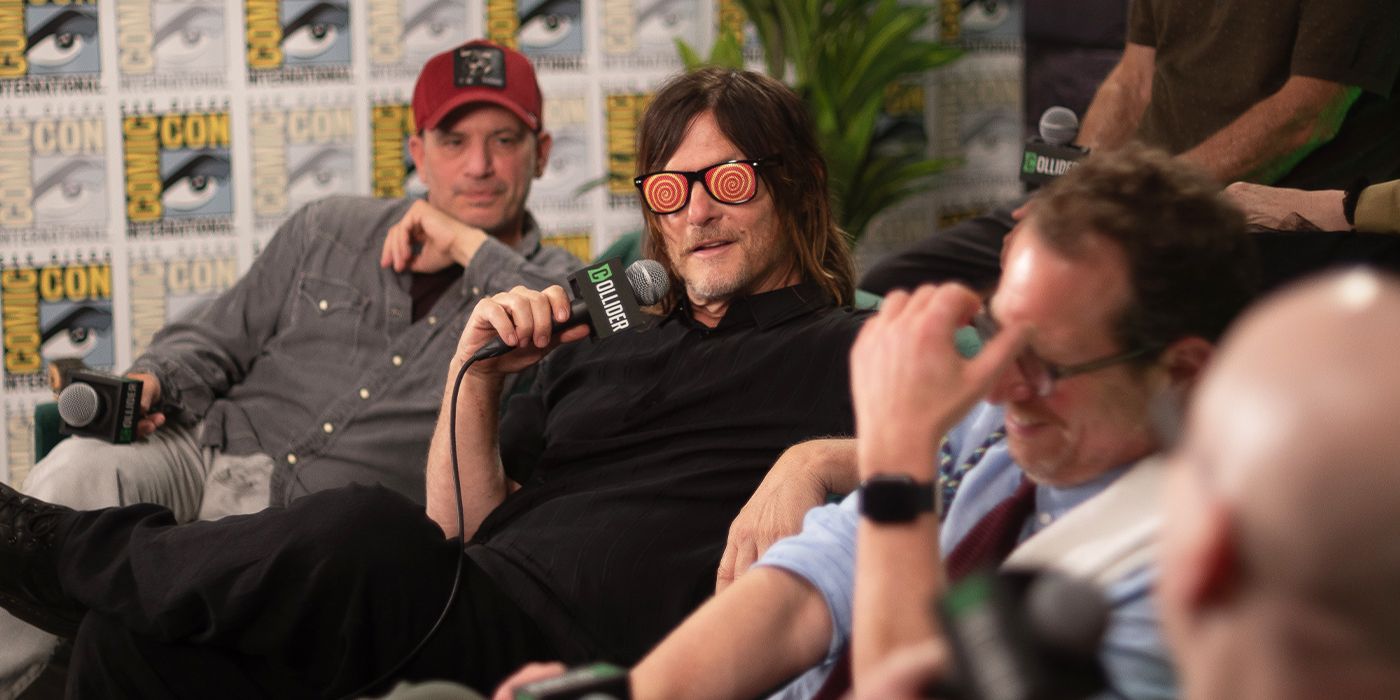
I have a follow-up in a second, but I want to hear from you first, Melissa, if you don't mind, in terms of what I just asked.
MCBRIDE: Well, there's still a way to go. Really, I just want to experience too much. I don't want to arrive before I get there. That's just one of these things. I try to live like that because I say that to myself a lot, because I usually end up arriving long before I get there, or I just don't go. You know what I mean? So I just really want to be in the moment from here on to the end, just really savoring these moments with this great group of people, being grateful for the people that I have worked with, these very talented artists, creative people, the writers, and I just want to experience that and not get too far ahead of myself thinking about whatever the end means, or a completion.
REEDUS: That is true. You don't know what it's going to feel like yet.
MCBRIDE: No. There's too much work to do.
You guys have inhabited these characters and these roles for a very long time. It's so rare to play characters like this on television for so long, and I'm just curious, for both of you, have you always envisioned an ending and where you want each of your characters to be, and how much are you discussing with the guys what those final scenes might be if this is the end of you playing these characters?
ZABEL: We've talked about it a lot. I'll just say, from my perspective, we're trying to come up with the best ending for the show that is called Daryl Dixon, the four years that we will have done of that show. Again, this goes more into Scott's territory, but I don't think of it as the end of the characters necessarily, or the end of their stories. I think of it as closure on this particular period of time that we've told the story of these two characters, getting over there and traveling through Europe, and coming out with a resolution that's surprising and satisfying, but also kind of has an open end to it.
Scott Gimple Says “Experimental” Projects Are in the Works for The Walking Dead
Greg Nicotero also shares how he has continued to shape the franchise since day one.
GIMPLE: You have plans, and then you have experiments. You sort of tend to them both. That's what we're doing right now. We have some directions that we're moving in, but there are a lot of different pieces to it. Then there's some really experimental stuff we're doing as well. There's sort of like the classic stuff, and then these smaller kinds of weirder experiments that we're in. But Robert Kirkman created The Walking Dead as the zombie movie that never ends, and we want to fulfill that one way or another. The thing about Robert Kirkman's vision of it isn't about the walkers, obviously. It's about the characters. So, that means, one way or another, I'd like to keep telling stories with these characters.
REEDUS: [Singing] "We're gonna getcha, getcha, getcha, getcha one day..."
I know you can't say anything…
GIMPLE: I definitely won't.
Exactly. I'll stop.
GIMPLE: You know what? I think Melissa has already said it, and I think the audience is there too. Let's not arrive before we get there.
NICOTERO: It's all-encompassing. Going from the original show and then coming over to Daryl Dixon, my initial responsibility was to provide some sort of cohesiveness and also to sort of educate David to the rules of the world and be a sounding board for him. On the original show, when the directors would come in, I was the person that they would come about, like, "Oh, how does this work and how does that work?" I feel like, having been as involved for such a long period of time, it's kind of like the way Norman and Melissa treat their characters. They know their characters because they've lived with them for a long time. I know what the show is about. I understand the DNA of the show because I was there from day one, literally a year before the show actually started production. So I love the idea that I can sort of champion what I believe is the DNA of the show and collaborate with David and Scott. We've had a great time.
It gave the show a certain energy, I think, because there was a combination of loyalty to the legacy and faithfulness to the inheritance of the show and the characters. But there was also some new energy that I brought, that Dan Percival, who's one of our directors, brought, that some of the other writers brought. So there was a great meeting of old and new, which, in a way, not to go crazy, but that's sort of the theme of the show, too. Going to Europe, we're constantly telling stories that exist in the space of the old meeting new: Old World, New World, the traditional ways, and the ways of the apocalypse. So, I think there's been kind of a simpatico to the whole thing that's really been great.
The Crew Reflects on The Walking Dead's Greatest Moments
They also discuss the impact on the history of television.
For the two of you, in all the seasons, including Daryl Dixon, which shot or sequence, when you think back, was the back-breaker, both good and bad. You've done tons of action. You've done all sorts of stuff on this show. You've been put through the wringer. When you think back, was there one that was especially challenging?
Melissa, was there one that was really tough for you?
MCBRIDE: I think Sophia coming out of the barn was really tough. Partly because Madison [Lintz] was in school, so I was doing it to a tennis ball on a stick. That was a little challenging. [Laughs] But even when she was there, it was still very challenging. It was highly emotional. And then "The Grove" was such a wonderful turning point for Carol's arc and such a great script, Scott Gimple. Did Angela [Kang] work on that, as well?

GIMPLE: I would say that's just me, but I love Angela.
MCBRIDE: Was that just you? I couldn't remember. Beautiful script.
GIMPLE: But Angela did an episode called "Still" that was pretty damn amazing.
REEDUS: We were talking about this a minute ago between rooms. This show, like, we've beaten M*A*S*H. To have a show that has this many people interested in it that goes this long, it's so rare.
It is basically impossible. This show won the lottery that people never win.
REEDUS: Yeah, it's wild.
MCBRIDE: It's been amazing just going through the years and coming onto this new spin-off and coming across fans in other places, in other countries. It's multi-generational. The parents are watching it. Now the children of those parents are watching it, but they were children when they started watching it. To be a part of that from the very beginning is, or at any time, like a lot of the people coming in from Spain, they know what they're getting into. It's planted into pop culture. It's planted into the history of television, and coming from television into new media and streaming. If television falls away, it was a part of something big and across generations and across platforms.
Yeah, I can't imagine what it's like for the two of you to walk through an airport. There are fans all around the world. It must be crazy.
Season 3 Invokes Spaghetti Westerns and "John Ford-Like" Storytelling
Season 4 takes a tonal shift and "evolves a bit."
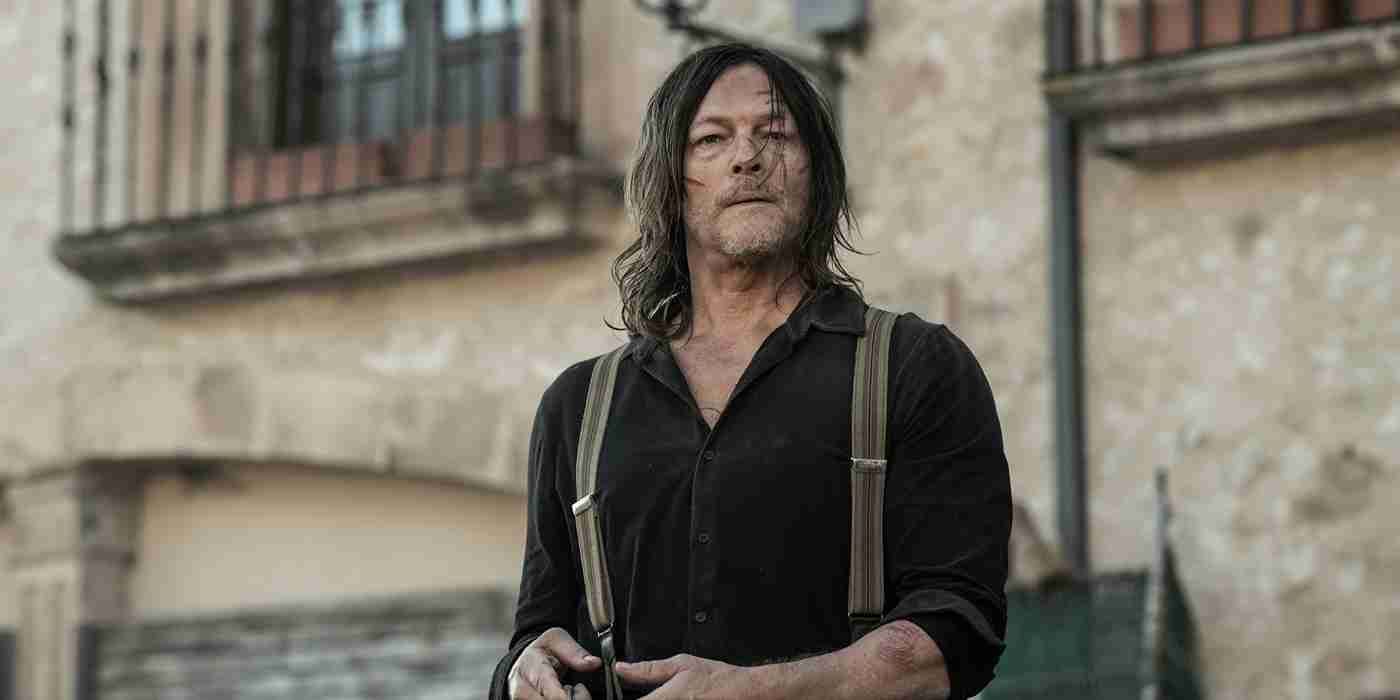
Season 3 is about to come out. What do you want to tell people about Season 3?
REEDUS: It's fucking great. It's fucking great. It's a Western. It's fucking great.
ZABEL: It's influenced by all these Spanish things, but one of the things that Jason [Richman] and I did, who writes and sort of designs the show with the stories with me, is we sat down and watched a lot of Sergio Leone movies that were shot in Spain, because we were just interested in, like, "Okay, that's a cool kind of storytelling, and it's made in the place that we're going to be making our show." So, that influenced a lot of the story all the way through.
GIMPLE: And you know what? You were talking about how movies are so important to you. Cinema is served this season. There is a character who argues for cinema essentially.
ZABEL: Yeah, he wanted to be a filmmaker, and he's preserved this little theater, so there's actually a lot of talk about that.
Are Seasons 3 and 4 both like a Western, or is Season 4 a different sort of tone and genre?
ZABEL: Season 4 has a slight difference in tone. They're of a piece, but Season 3 is more focused on sort of really emulating some of those aspects of Westerns and Spaghetti Westerns. It includes a rescue mission that's very John Ford-like. Season 4, it's of a piece with that, but it evolves a bit. We just started making Season 4, so that's also evolving still, but I think it's a little bit different.
I could ask you a million other questions, but I'm out of time. I'm just going to say thank you for coming in. Thank you for so many years of entertainment. I'm sad that it's coming to a close, but I'm looking forward to watching.
![The Walking Dead's Norman Reedus Reveals Exactly How He Wants Daryl Dixon's Story to End [Exclusive]](https://static1.colliderimages.com/wordpress/wp-content/uploads/2024/11/the-walking-dead-daryl-dixon-the-book-of-carol-episode-4-norman-reedus-02.jpg)

